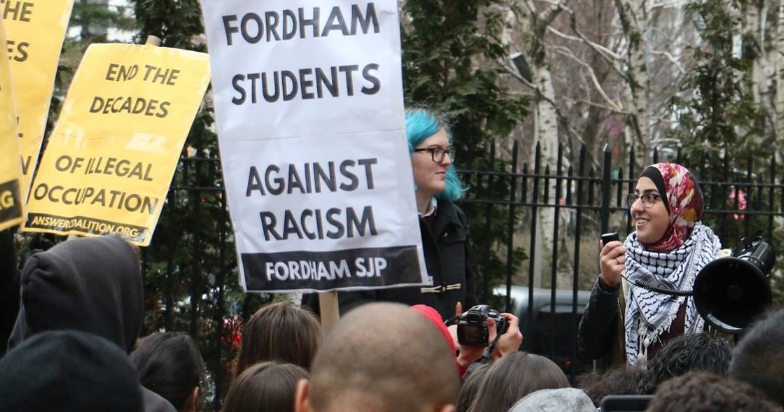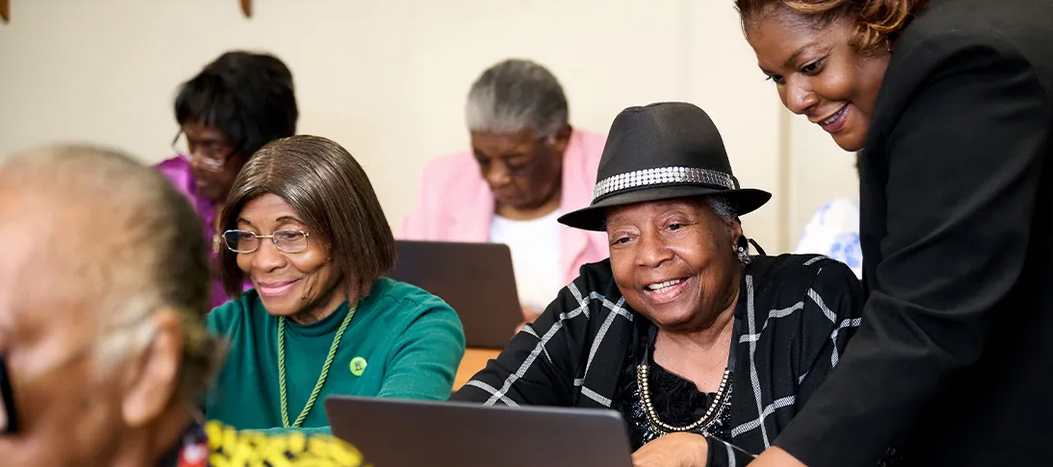Photo: Facebook
The highest court in New York State has refused to hear an appeal on Fordham University’s ban of Students for Justice in Palestine.
Fordham prohibited students from forming an official Students for Justice in Palestine (SJP) school club in 2015 because of the group’s “political goals” and claims that it would be “polarizing.”
Four students, represented by the Center for Constitutional Rights, Palestine Legal, and attorney Alan Levine, sued Fordham in 2017. A trial court annulled Fordham’s decision in August 2019, mandating that the university recognize SJP as an official club because Fordham’s refusal was irrational and inconsistent with its own policies, which protect free expression. Following that decision, SJP operated successfully for more than a year at Fordham.
Fordham appealed that ruling, and a New York appellate court hastily issued a reversal of that decision with minimal analysis last December following oral arguments the month before.
The students sought to appeal the ban on their club to the highest court in the state, the New York Court of Appeals, in a January 2021 motion that was denied last month. The court only hears about 10 percent of the cases that seek its review.
No further appeals are possible in this case, which was brought under a state law that only applies in New York. The appellate court narrowly found that the case could not be pursued by Fordham students that had since graduated, or by current students despite being subject to the same ban, since they had not reapplied to start SJP. The court also deferred to Fordham’s decision-making discretion, without delving into the specific facts of the case. This case did not include a First Amendment challenge because Fordham is a private university, and it does not affect students’ rights to organize on other campuses.
In contrast, the 2019 decision in the lower court rightly recognized that nothing in Fordham’s rules permitted it to “reject an application of a student club because it criticized the policies of only one nation.” In that ruling, Justice Nancy Bannon stated that “it must be concluded that [Fordham University’s] disapproval of SJP was made in large part because the subject of SJP’s criticism is the State of Israel, rather than some other nation, in spite of the fact that SJP advocates only legal, nonviolent tactics aimed at changing Israel’s policies.”
“I am beyond disappointed with the shameful reversal of our historic win in the trial court,” said Veer Shetty, a senior at Fordham and vice president of Fordham Students for Justice in Palestine. “We have been fighting for five years just to have a space where we can discuss and advocate for Palestinian rights on campus. Fordham has now been given permission to censor us at a moment when Palestinians are under attack throughout Palestine, and the whole world is speaking out. We refuse to be silent, and Fordham will hear us.”
Though all of the students who originally sought to form the SJP club have since graduated, current Fordham students continued the fight. Following the 2019 lower court decision, which ordered Fordham to recognize the club, Fordham SJP was in operation – without incident – for two semesters. After the negative appellate division decision, the university told the students their club could no longer operate.
“We’ll continue supporting students’ right to organize for Palestinian rights at Fordham and across the country – especially in this moment of urgency for Palestinian lives,” said Radhika Sainath, senior staff attorney at Palestine Legal. “Even the courts cannot stop a grassroots movement for freedom.”
The movement for Palestinian rights has continued to grow, at Fordham and around the country, despite Fordham’s official censorship of SJP, and despite coordinated nationwide attacks on people organizing for Palestinian rights.
“Fordham may have won this legal battle, but it comes with a loss: Fordham shamefully abdicated its obligations as an academic institution. While Fordham will be remembered for its blatant act of censorship, the students will live to see their demand for justice in Palestine become a reality,” said Center for Constitutional Rights cooperating counsel Alan Levine.
For more information, visit Palestine Legal’s case page and the Center for Constitutional Rights’ case page.
Visit www.palestinelegal.org and follow us on Facebook, Twitter and Instagram.
Learn more at ccrjustice.org.








